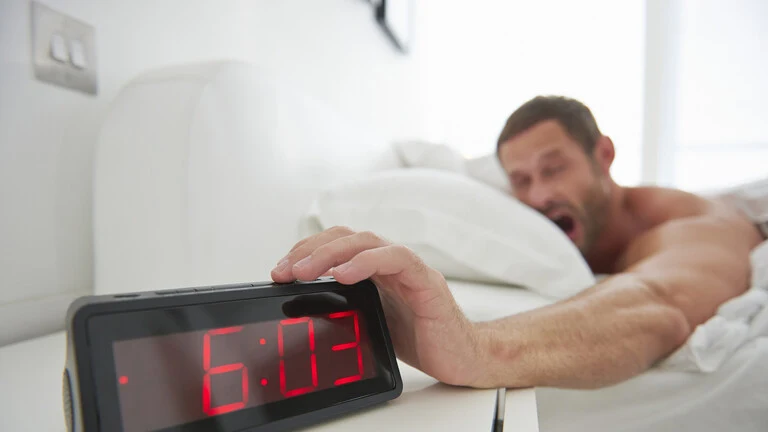Researchers have suggested that a light snooze after waking up from the alarm sound and setting it to ring a few minutes later may be more harmful to our health than we expect.
Researchers from the University of Notre Dame in the United States found that people who caught a series of alerts to wake them up in the morning are more likely to have a high heart rate than those who wake up after just one alarm clock.
The persistently high heart rate has been associated with a number of negative health effects, including diabetes and heart disease.
Of the 450 participants in the study
- 57% said they tended to snooze in the morning rather than get out of bed directly,
- and women were 12% more likely than men to have the practice.
- The study also found that those people who spent a long time sleeping were more likely to spend the last hour in bed in light sleep
- compared to the deeper sleep enjoyed by those who did not fall asleep after the alarm.
People who often disappeared were almost twice as likely to be late for work.
In a different study, scientists at the French National Institute of Health and Medical Research followed 7,000 healthy adults aged 50 to 75 for ten years, finding that only one in ten sleeps well on a regular basis.
The results indicated that well-sleeping participants had 75% less heart disease or stroke than their poor sleeping counterparts.
In the Notre Dame study, participants pointed to the inability to wake up after only one stimulus, as the most common reason for increased snoozing, while the second most common answer was the unwillingness to leave their comfortable bed.

